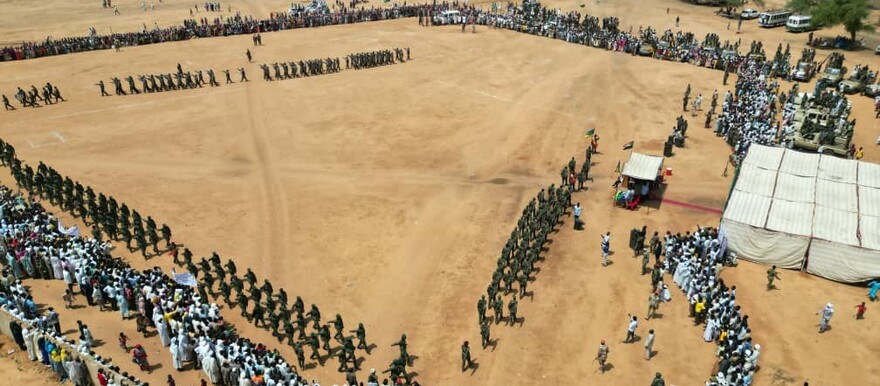Citizens at Zamzam camp in Sudan’s North Darfur State on Tuesday expressed mixed reactions to the recent graduation of the Joint Protection Forces.
The Sudan Liberation Army (SLA), led by the Governor of the Darfur region, Minni Arko Minnawi, last Wednesday graduated the 36th batch of the Joint Protection Forces. The forces comprise the Darfur armed movements who signed the Juba Peace Agreement.
Speaking to Radio Tamazuj, several people in the area believe that the graduation of the new batch may contribute to stability and security in the Darfur region, while others think this could contribute to rising tension between the armed struggle movements and the Rapid Support Forces (RSF).
Abu Al-Gasim Omar Abdullah, a resident of El Fasher town, said that the joint forces formed by the Darfur armed movements have contributed to stabilizing the security situation in the region since the outbreak of the conflict.
“The graduation of this new battalion is also a real additional force to advance the peace process for the citizens of Darfur in general and El Fasher in particular,” he added.
Omar pointed out that relative calm returned to El Fasher after the deployment of these joint forces.
Meanwhile, human rights activist Wali Al-Din Suleiman pointed out that the joint forces have been working to provide security in Darfur after the outbreak of the war. He stressed that these forces need financial support and that the government must support them to keep peace.
“This is a positive step and contributes to providing security in the cities of Darfur, especially El Fasher in Nyala,” he said.
Jihan Abdullah Mohammed, the general coordinator of the Darfur Regional Working Group, expressed fears that the graduation of the 36th batch of the joint forces in North Darfur State may cause tensions between the Rapid Support Forces and the Darfur armed movements.
She pointed out that the Sudan Liberation Army (SLA), led by Governor Minni Arko Minawi, has been escorting convoys in bringing in food supplies and medicines, saying that the Rapid Support Forces accuse the joint protection forces of taking money to protect the convoys.
“If the joint force’s goals were to protect civilians in El Fasher and Nyala towns, this step would be excellent, but if it is for other goals, the result would be disastrous,” she concluded.




